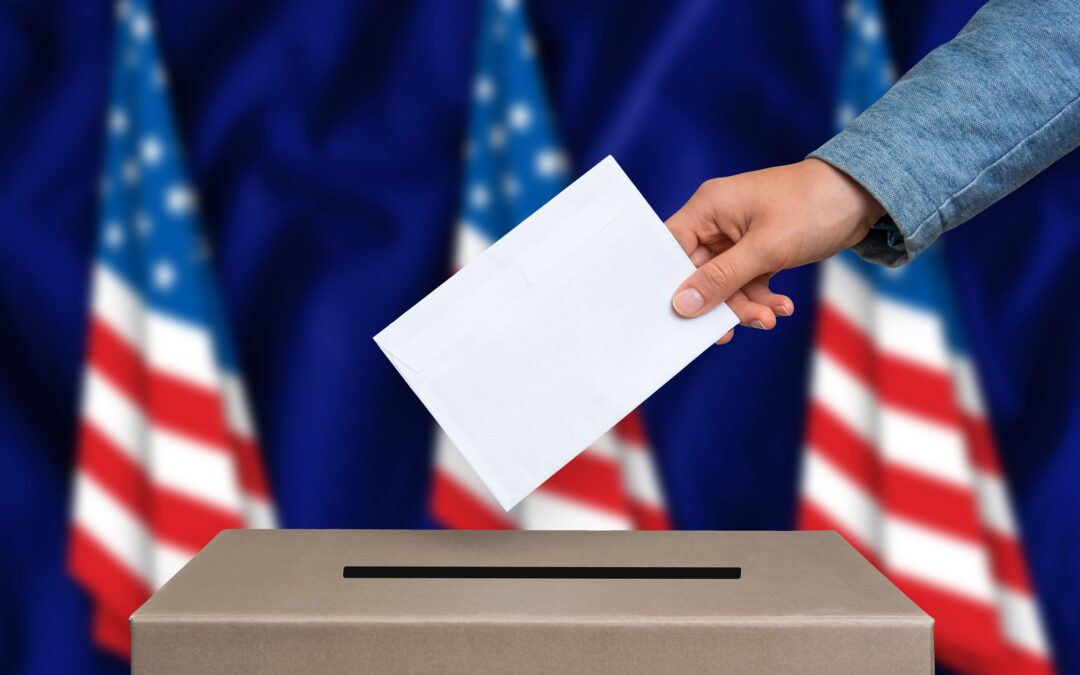Most people paying attention to elections in Arizona have likely heard of Federal Only voters, but few probably know the complicated history of how we began bifurcating our voter registration system and allowing individuals to vote in federal elections, even if they haven’t proven they are a US citizen.
History
In 2004, Arizona voters overwhelmingly approved Proposition 200 which, in part, created the requirement that “the county recorder shall reject any application for registration that is not accompanied by satisfactory evidence of United States citizenship.” (A.R.S § 16-166(F)). At that time, Arizona was under what was known as preclearance, where the Department of Justice essentially held veto power over state election laws. The Documented Proof of Citizenship (DPOC) provision of Prop 200, however, did receive preclearance by the DOJ and went into effect in 2005. Arizona was immediately sued.
The problem was that in 1993 Congress passed the National Voter Registration Act (NVRA) which, among other mandates, created a federal voter registration form that each state must “accept and use.”
The Election Assistance Commission (EAC) was given the authority to design this federal voter registration form, on which they were required to provide state specific instructions to account for the different requirements of each of the 50 states. Arizona’s DPOC requirement, however, was left out and only a box remained for applicants to attest to their citizenship status – an honor system.
The suit brought against the state argued that this NVRA requirement to “accept and use” the federal form preempts Arizona from requiring any information from applicants beyond what is requested on the federal form. After years in and out of the courts, the case made its way to the US Supreme Court.
In 2013 the 7-2 decision of Inter Tribal Council held that the NVRA does preempt Arizona’s DPOC requirement, and that Arizona may not request additional information beyond that which is required on the federal form and must, assuming the application is complete and the applicant is qualified, register an applicant to vote in federal elections.
Following this decision, Secretary of State Ken Bennet bifurcated our voter registration system to prevent individuals using federal forms from being registered to vote in all Arizona elections. And, importantly, Arizona continued to reject applications for registration made on the state voter registration form that did not include DPOC.
But Arizona was sued yet again in 2017 by the League of United Latin American Citizens (LULAC), this time alleging that by accepting federal forms for registration without DPOC (as the Supreme Court required), but rejecting state forms (as the same Court affirmed we could), Arizona was violating the 14th Amendment’s Equal Protection Clause by treating applicants differently. Instead of going to trial, Secretary of State Michelle Reagan and Maricopa County Recorder Adrian Fontes agreed to settle the case with LULAC and enter into what is called a Consent Decree (a settlement that comes with the power of a court order).
In the settlement, Arizona maintained that it was not violating the Equal Protection Clause and that the practice of rejecting state forms for registration was not unconstitutional or preempted by federal law. However, the state agreed that it could accept these forms and register the applicants as federal only voters and stay within the requirements of A.R.S § 16-166(F). In other words, they agreed in court that they could accept forms while somehow complying with Prop 200’s mandate to reject them.
As a result, the practice in 2005 of rejecting all forms that did not include DPOC is now the opposite. Since 2019, Arizona has been registering applicants who use the state voter registration form or the federal form without DPOC as federal only voters, despite Arizona law requiring them to be rejected.
Impact
In 2018, over 1,700 individuals voted in elections for federal office who had not provided DPOC. In 2020, the first election with the 2017 Consent Decree in effect, that number grew to more than 11,600. As of now, more than 36,000 individuals are registered to vote in elections for federal office, yet they have never provided DPOC. To contextualize these numbers, the 2020 statewide margin of victory for the Presidential election in Arizona was 10,457 votes.
Solution
As can be seen, this is a complex issue – a ballot proposition, federal law, the US Constitution, lawsuits, a Supreme Court ruling, a Consent Decree, a federal voter registration form, and a state voter registration form. All intertwine and have, over the past two decades, whittled away at Prop 200 and led to the complete proliferation of a Federal Only voter list, allowing individuals who have not proven they are citizens to vote in our elections.
However, there is a solution that walks the fine legal line and ensures Arizona asserts its Constitutional authority to determine the qualifications of voters and safeguards our registration process. That solution is HB2492, sponsored by Rep. Jake Hoffman.
Next week, we will break down the provisions of the bill and outline how it will help restore the integrity of our voter rolls.
Help Stop Illegals from Voting!
U.S Citizenship is a qualification for voting in both the Arizona constitution and Arizona law. Arizona voters overwhelmingly passed Proposition 200 in 2004 to ensure only US Citizens could register to vote by requiring that “the county recorder shall reject any application for registration that is not accompanied by satisfactory evidence of United States citizenship.”
Unfortunately, through the well-funded lawfare of the left, this requirement has been whittled away and the Federal Only Voter list has exploded. HB2492 will safeguard our voter rolls by ensuring only qualified, U.S Citizens are registered to vote, are able vote in Presidential elections, and eligible to vote by mail.
Will you sign our petition to PROTECT our voter registration process and SUPPORT HB2492?


Recent Comments